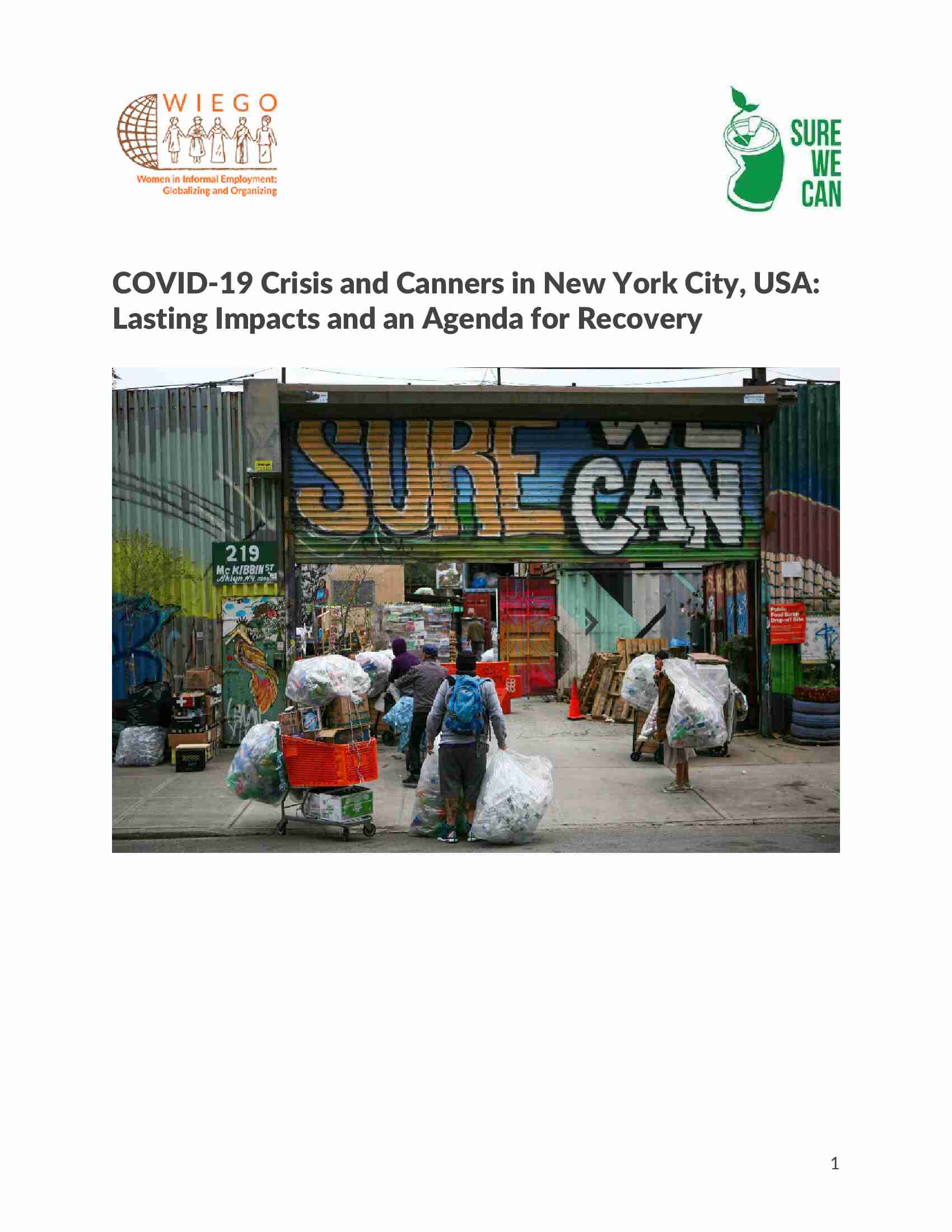COVID-19 Crisis and Canners in New York City, USA: Lasting Impacts and an Agenda for Recovery
Canners represent many underserved populations in New York City, including racially or ethnically marginalized groups, undocumented immigrants, seniors, people experiencing mental or physical disabilities, the chronically homeless, and those who are frequent movers.This report presents the NYC canning sector findings from Round 2 of the WIEGO-led COVID-19 Crisis and the Informal Economy study that was conducted in mid-year 2021 to assess how specific groups of informal workers and their households were experiencing COVID-19 resurgences and ongoing economic strains, and to what extent (if any) they had recovered.
Key Findings
Ability to work and earnings: The canning sector is resilient but vulnerable — canners are back to work for more days per week than before the beginning of the crisis, and are earning more than pre-crisis levels, however at $31 a day these earnings remain far below the NYC poverty threshold.
Loss of savings: Despite a recovery in their ability to work and earn, canners experienced losses in 2020 and had to rely on asset-depleting strategies to cope. 96% of canners reported an inability to build back any savings lost over the past 12 months.
Mental and physical health concerns: Respondents identified mental and physical health concerns as the principal area of impact from the COVID-19 crisis. This included COVID-19 infection, fear of infection and mental health issues, such as anxiety and isolation.
Relief for some, others excluded: 72% of canners received cash relief from the government during the COVID-19 crisis. Migration status was the main reason canners were blocked from accessing relief.
View list of all: City/Country Level Reports

